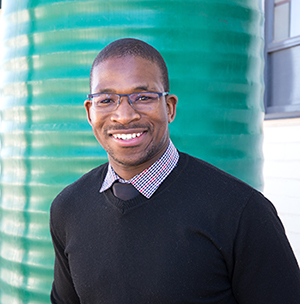Latest News Archive
Please select Category, Year, and then Month to display items
18 November 2024
|
Story Jacques Maritz
|
Photo Supplied
 Muhammad Cassim, a second-year student in the Department of Engineering Sciences in the Faculty of Natural and Agricultural Sciences.
Muhammad Cassim, a second-year student in the Department of Engineering Sciences in the Faculty of Natural and Agricultural Sciences.
Muhammad Cassim, a second-year student in the Department of Engineering Sciences in the Faculty of Natural and Agricultural Sciences at the University of the Free State, will participate in the winter university project in Pskov, Russia, from 25 November to 9 December 2024.
The winter school aims to strengthen relationships among young engineers and deepen international interaction via skills improvement, joint projects, and social cohesion. The programme boasts a densely packed education block, project block, and cultural block.
Cassim is part of the UFS Grid Related Research Group and actively participates in research centred on complexity science. He intends to complete his BSc Physics degree with Engineering subjects and progress towards postgraduate studies in the UFS Department of Physics.
He is currently working on verifying experimental developments in the field of synchronisation in complex networks. While he has already completed this high-performance computing training in his first year under the leadership of Albert van Eck (Director, UFS E-research), he is looking forward to the masterclasses in holographic modelling, deep learning, direct laser deposition, and database. Closely resembling his current research, he will have the opportunity to gain more experience in the use of set theory and graph theory in solving digital information processing problems.
For more information about international scholarships for study abroad opportunities, contact Mbali Moiketsi in the Office for International Affairs.
Cassim’s student profile is the culmination of the department’s strategy to produce young applied scientists who are subjected to the culture of research during their undergraduate study and could articulate with ease to other departments for postgraduate studies. The department aims to align with the UFS’ Vision 130 by producing competitive students who can operate in the postgraduate paradigm with the digital themes of veterinary science and ecological engineering science.
University of the Free State strives towards going ‘green’
2017-08-07

Benedict Mochesela from University Estates on the
UFS Bloemfontein Campus. A total of thirty brand-new
water storage tanks, between 5 000 and 20 000 litres,
were installed.
Photo: Anja Aucamp
Eight provinces, including the Free State, were declared disaster areas last year due to the ongoing drought. This had a devastating effect on the agricultural sector, leaving many communities dry.
University Estates at the University of the Free State found an ideal project to make university buildings greener. A total of thirty water storage tanks, varying in size from 5 000 to 20 000 litres, were installed at various buildings on the Bloemfontein Campus. As a pilot phase, these tanks were specifically installed at residences and buildings with high traffic volumes.
Importance of water tanks at the UFS
According to Benedict Mochesela, Project Manager of this initiative, the purpose of the project is to harvest rainwater, which will be used during emergencies when the campus does not have water and the emergency water storage facility is depleted. “This water is not intended for drinking, but for the flushing of toilets,” says Mochesela.
He mentioned that the water will also be used for watering flowerbeds and gardens when the water has been standing for a long time without being used.
Recycling water: An initiative to protect the environment
A number of water storage tanks are already in place at the Qwaqwa Campus and a preliminary phase of using grey water from residences is currently ongoing at the South Campus. Grey water is made up of bath, shower, and bathroom sink water. The water is reused for toilet flushing as well as for irrigation purposes.
“Recycling of water is one of a number of initiatives the university intends to undertake to ensure and show the community that this institution remains conscious of the environment and to changes which we continuously need to adapt to.”